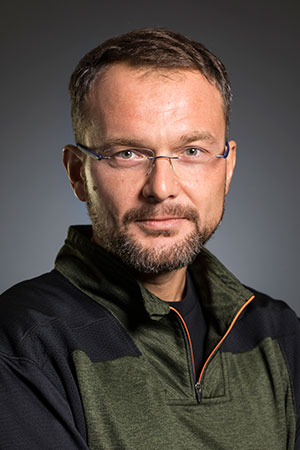Ecohydrology means “opportunity” for hydrologic sciences to go beyond the classical problems of hydrology such as water balance and flood predictions. It is an opportunity to connect with life on Earth and its dynamics at different space and time scales as coupled with hydrological processes. It is an opportunity to better connect hydrology with landscapes and geomorphic processes that shape both landforms and their ecosystems.
What are your undergraduate and graduate degrees in?
My undergrad and MS degrees are in agricultural and irrigation engineering. I obtained my PhD from civil and environmental engineering, studying sediment generation and transport processes from steep forested mountain watersheds in central Idaho using detailed field measurements and numerical modeling.
How did you arrive at working in/thinking about ecohydrology?
I started thinking about ecohydrology when I was a postdoc. I was interested in extending my PhD work to long-term modeling of landforms using a landscape evolution model (LEM). LEMs are used to evolve 3-Dimensional landscapes using conservation rules for water and sediment. My advisor Rafael Bras and I were interested to see if dynamic vegetation imposes a geomorphic imprint on landscapes. We developed models for vegetation dynamics from simple to complex and experimented with model parameters using a LEM.
What do you see as an important emerging area of ecohydrology?
Linking ecohydrology with geomorphology and hydroclimatology is one such emerging area that can lead to important findings in the complex response of the Earth surface system to disturbances and extremes both in short and long time scales. One example would be predicting floods and sedimentation processes, imagine how a semiarid landscape would respond to a high-intensity storm before and after a wildfire or runoff and erosion rates from polar-facing slopes with lush growth versus sparsely vegetated equatorial facing slopes. Earth’s morphology has carried long-term signatures of ecohydrologic processes under changing climatic boundary conditions. Deciphering geomorphic patterns and inferring ecosystems over time from them in relation to paleoecological methods could tell us a lot about how complex processes couplings worked and shaped our planet, and perhaps can be used in the future as we find planets similar to ours.
Do you have a favorite ecohydrology paper? Describe/explain.
Obviously there’s more than one paper I can think of. But van Wijk and Rodriguez-Iturbe (2002) Tree-grass competition in space and time: Insights from a simple cellular automata model based on ecohydrological dynamics presented eye-opening results, for the first time, using a cellular automaton (CA) model that explained the development of spatial vegetation patterns for different plant functional types based on simple rules for seed dispersal and seasonal plant water stress. Their model was driven by stochastic storm pulses that lead to temporal patterns in soil moisture. The authors reported relationships between the statistical properties of plant cluster sizes and inter-annual climate variability. My students and I were inspired with this paper and developed CA models for ecohydrologic vegetation dynamics coupled to landscape evolution processes.
What do you do for fun (apart from ecohydrology)?
Being a hydrologist was not part of my career goal when I was in high school and even as freshman in college. I always wanted to be a theater actor and a singer. We have little neighborhood band and we rock’n roll from time to time in a basement on Saturday afternoons when we get a break from our professional career as chauffeur for our kids. I have plans to start a jazz night school and learn singing jazz more professionally.

 RSS Feed
RSS Feed